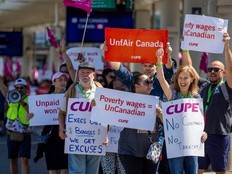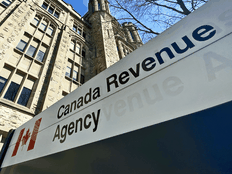FUSS: CBC ‘fact-checker’ gets his facts wrong

Article content
At all times, during an election period and beyond, the media must report accurate information and, when necessary, correct the record. For example, following the English-language federal leaders’ debate on April 17, CBC reporter Jonathon Gatehouse appeared on CBC News and “fact-checked” a statement by Conservative Leader Pierre Poilievre, who had referenced a study published by the Fraser Institute. Unfortunately, during the segment, Gatehouse got his facts wrong.
The study (of which I’m a co-author) found that in 2023, the total tax bill (income taxes, property taxes, sales taxes, fuel taxes, etc.) for the average Canadian family equaled 43% of its annual income — more than it spent on food, clothing and housing combined, and significantly higher than the 33.5% it paid in 1961. Put differently, taxes represent the number one expense for the average family today.
In response, Gatehouse made two false statements.
First, he falsely claimed the study does not take “inflation into account.” But, in fact, the study tracks changes in the tax bill for the average family since 1961 and explicitly adjusts for inflation to provide an apples-to-apples comparison over multiple decades. As shown in the study, after accounting for inflation, the tax bill has grown by $30,227 (or 180.3%) from 1961 to 2023. The study also includes other years of tax data, adjusted for inflation, to provide additional points of comparison for readers.
Second, Gatehouse falsely claimed the study does not account for carbon rebates. But, in fact, it does account for the Canada Carbon Rebate (CCR) when calculating the income of the average Canadian family, because the CCR represents a transfer from the federal government to households. (After adding up all the various sources of income, including carbon rebates, the study finds the average Canadian family earned an income of $109,235 in 2023.)
Finally, Gatehouse offered his subjective opinion about the study’s calculations, stating that “the problem is, they also included CPP and EI contributions in their calculations. Now, those are effectively down payments on future benefits for when people retire or lose their jobs — not taxes.”
Of course, people can reasonably disagree about the definition of taxes. But Gatehouse veered away from his role as an objective fact-checker and violated CBC’s journalistic principle to “not promote any particular point of view on matters of public debate.” Many economists argue that CPP and EI contributions are, in fact, taxes. And our study treats these contributions (which are typically deducted from our paycheques) as payroll taxes because they are mandatory and support government programs. Despite Gatehouse’s claims, the money we pay into the CPP is not a down payment on our future benefits, but mainly pays for the benefits of current retired workers. The federal government also has no legal obligation to provide any CPP benefits to workers at all, and it can simply increase mandatory CPP contributions without raising CPP benefits.
According to CBC’s journalistic principles, its reporters must “seek out the truth in all matters of public interest” while treating “individuals and organizations with openness and respect.” In his “fact-checking” segment following the federal leaders’ debate, Gatehouse violated both of these principles. Neither the CBC nor Gatehouse contacted anyone at the Fraser Institute to verify his false claims.
Fact-checking remains an important exercise to provide Canadians with accurate information. Evidently, some fact-checkers require fact-checkers of their own.
Jake Fuss is director of fiscal studies at the Fraser Institute











Postmedia is committed to maintaining a lively but civil forum for discussion. Please keep comments relevant and respectful. Comments may take up to an hour to appear on the site. You will receive an email if there is a reply to your comment, an update to a thread you follow or if a user you follow comments. Visit our Community Guidelines for more information.